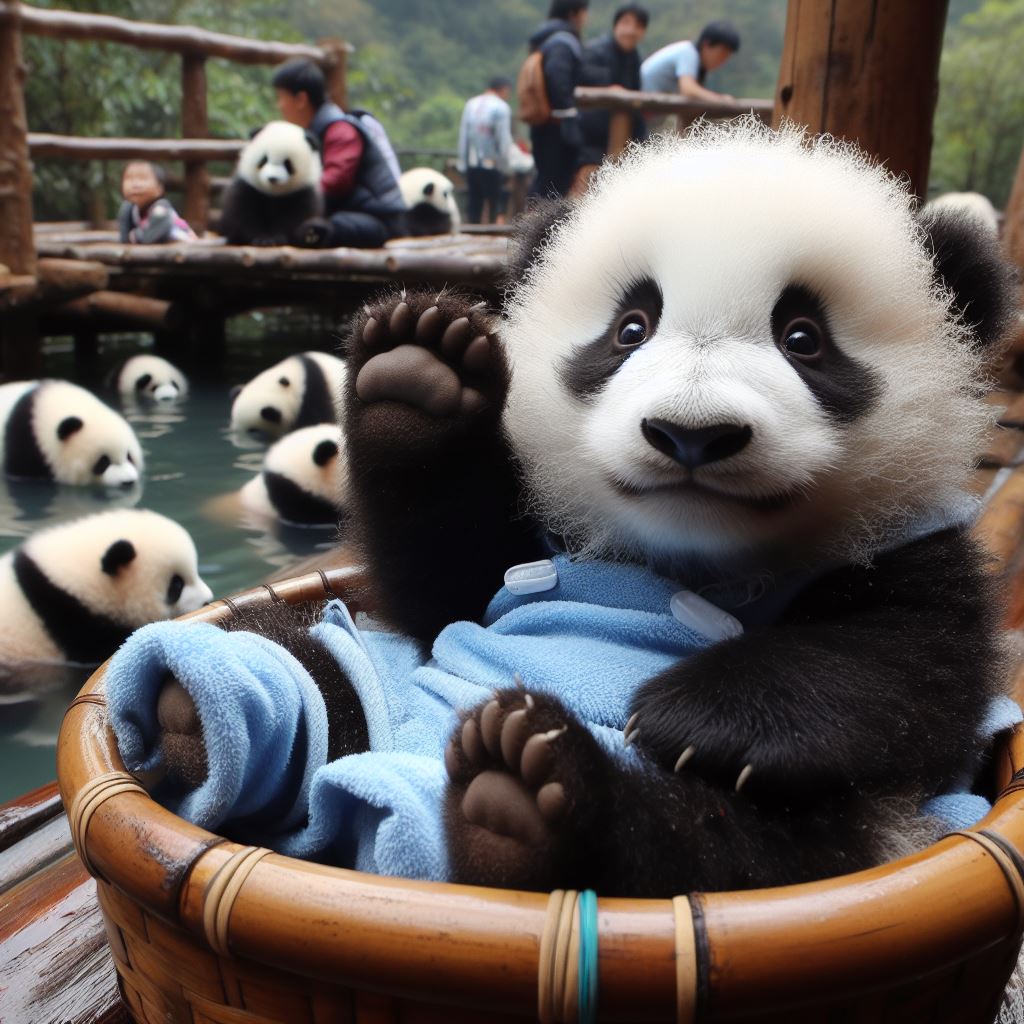韓國出生的熊貓“福寶”回中國四川,將以半野化方式飼養。
大熊貓的全野化和半野化是為增加其野外生存能力而進行的兩種不同方式。
全野化:在人工環境中飼養的大熊貓完全野放到其自然棲息地中,讓牠們自行生活、繁殖並與野生熊貓群體進行互動。全野化的過程通常需要幾個階段,包括野外訓練、自然環境適應和社會化。這些步驟旨在幫助大熊貓適應野外生活,學會尋找食物、建立領地、避免天敵等。
半野化:在大熊貓的自然棲息地中建立野外保護區或野生動物保護區,將飼養中的大熊貓釋放到這些區域中,但仍然對牠們進行監控和照顧。這種方式可以讓大熊貓在更接近自然環境的條件下生活,同時也能夠提供必要的保護和干預,以確保牠們的安全和健康。
這兩種方式都旨在增加大熊貓在野外生存的機會,並促進其自然棲息地的保護和恢復。不過,這些計劃需要精心規劃和持續的監測,以確保大熊貓能夠成功適應野外生活並為其種群的增長做出貢獻。
最近,首隻在韓國出生的熊貓“福寶”已依照當時的出租契約被送回中國四川。許多韓國人對此表示不捨。據大陸動物園方表示,福寶將以半野生方式飼養,享有比原先動物園更大的自由活動空間,以提升其野外求生能力。飼養員將定期提供食物、進行衛生打掃和必要的訓練,但不會與人類有過多接觸。然而,福寶的情況相對特殊,從小就與兩位韓國飼養員有密切互動,她經常透過翻滾等方式引起注意,期望與飼養員互動玩耍,並表現出相當的自尊心,喜歡與人類互動,某種程度上,福寶的個性與人類相當類似。這一舉動引發眾多韓國網友的擔憂,紛紛請願再次租借福寶。
The full wild and semi-wild techniques of giant pandas are two different approaches aimed at enhancing their survival skills in the wild.
Full wild: Giant pandas raised in artificial environments are completely released into their natural habitats to live, breed, and interact with wild panda populations. The process of full wilding typically involves several stages, including wilderness training, adaptation to natural environments, and socialization. These steps are intended to help giant pandas adapt to life in the wild, learn to find food, establish territories, and avoid predators.
Semi-wild: Wildlife reserves or wildlife sanctuaries are established in the natural habitats of giant pandas, where captive pandas are released, but still monitored and cared for. This approach allows giant pandas to live in conditions closer to their natural environment while also providing necessary protection and intervention to ensure their safety and health.
Both of these approaches aim to increase the giant pandas' chances of survival in the wild and promote the conservation and restoration of their natural habitats. However, these programs require careful planning and ongoing monitoring to ensure that giant pandas can successfully adapt to life in the wild and contribute to the growth of their populations.
Recently, the first panda born in South Korea, "Fu Bao," was returned to Sichuan, China, in accordance with the lease agreement at the time. Many Koreans expressed their reluctance to see Fu Bao leave. According to the mainland zoo, Fu Bao will be raised in a semi-wild manner, with a much larger space for free movement than in the original zoo, to enhance her survival skills in the wild. Keepers will regularly provide food, clean, and provide necessary training, but there will be limited interaction with humans. However, Fu Bao's situation is somewhat special, as she has had close interactions with two Korean keepers since she was young. She often seeks attention through rolling and expects to interact and play with her keepers. She exhibits considerable self-esteem and enjoys interacting with humans. To some extent, Fu Bao's personality is quite similar to that of humans. This action has raised concerns among many Korean netizens, who are petitioning to have Fu Bao leased again.




照片:DALLE3
- 1
- 2
- 3
- 4
